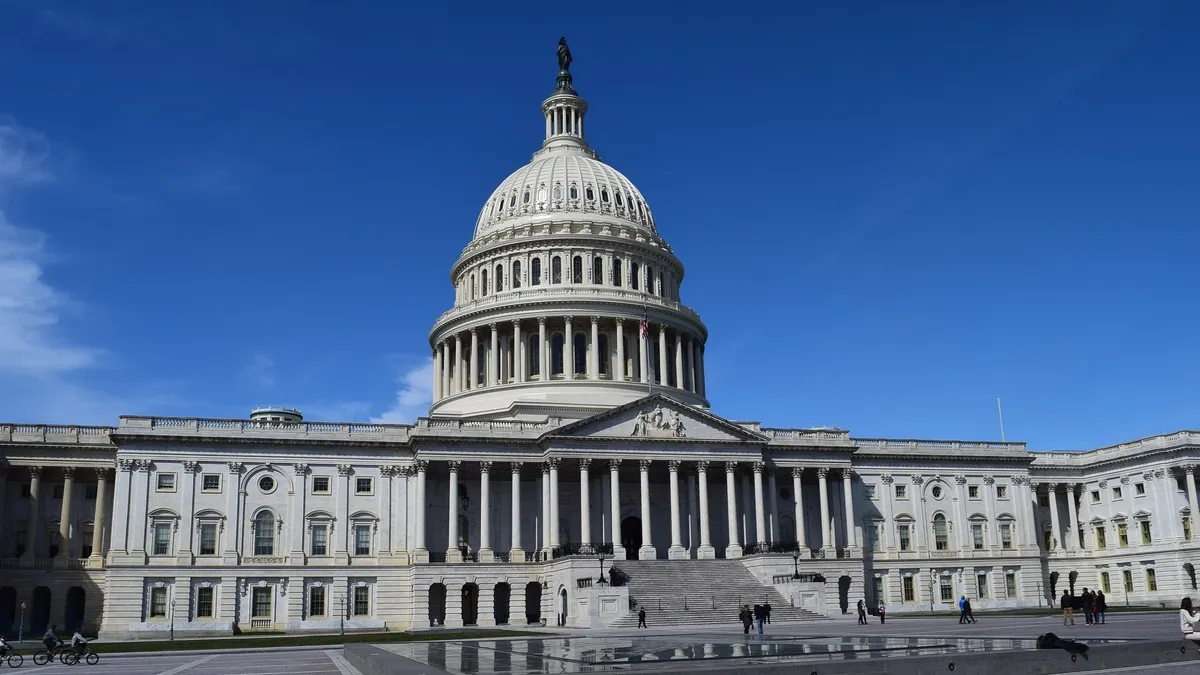Dive Brief:
-
Higher education organizations are lobbying the federal government to provide new money and regulatory flexibility to colleges in light of the ongoing coronavirus pandemic.
-
In a memo prepared by the American Council on Education (ACE), 10 associations call for new grant programs that would benefit low-income students and institutions affected by the novel coronavirus.
-
Their request comes as many colleges shift classes online and determine how the virus will impact their long-term financial stability.
Dive Insight:
As the coronavirus and the respiratory disease it causes, COVID-19, took hold in the U.S., colleges rapidly began to move courses online and assess how the situation would stress their budgets.
Taking instruction remote has short-term costs, especially for colleges that lack a robust online infrastructure. In the letter, the groups recommend the government provide $7.8 billion in funding "to ensure that institutions are supported in the transition to distance learning"and students don't lose access to instruction, noting that some students lack a viable internet connection away from campus.
Many institutions have asked students to move out of campus residences. While some of those colleges are giving students partial refunds for room and board, doing so eats away at key revenue. Such auxiliary services will experience immediate revenue declines, Moody's Investors Service noted in a report this week.
Administrators generally have been making narrow exceptions for students to remain on campus. But some students, including those who are poor, homeless or struggling to meet their basic needs, may need additional support.
To that end, the organizations proposed new federal aid that would be disbursed through the Pell Grant system, ensuring it is administered quickly. Grants to colleges would be based on their enrollment. At least 25% of the money should be designated as emergency funding for students, with each grant capped at $1,500 per person, ACE wrote. The rest can be used by colleges as needed to address losses or additional costs from the coronavirus.
Similarly, more than 50 advocacy groups and think tanks, including several dedicated to higher ed, wrote to congressional leaders this week pressing them to provide aid to students.
Institutions will also need financial assistance to weather a tough economic period, ACE points out. It requested the federal government promote access to zero-interest loans for "otherwise financially stable institutions"and give them a way to affordably refinance existing debt.
Finally, ACE's letter called for widespread flexibility from typical regulatory requirements. The groups asked Congress to suspend the usual rules "relating to the eligibility, determination, and disbursement"of Title IV funding. As an example, it wrote, students should not have their Pell eligibility reduced if their campus closes because of COVID-19. So far, the U.S. Department of Education has offered some flexibility for schools to continue receiving Title IV funding as they close campuses and move instruction online.
Education Secretary Betsy DeVos should also be granted the ability to waive statutory and regulatory provisions, ACE wrote. This is meant in part to protect schools, as requiring institutions to comply with current financial responsibility standards "under the duress imposed by the pandemic "would result in artificially low scores and suspended aid, "with the possibility of closures that would otherwise not occur," it explains.
A spending package Senate Republicans have drafted would give DeVos some new powers, including the ability to provide waivers from the Higher Education Act and to defer payments on certain capital financing for historically black colleges. The package also calls for deferring student loan payments for a time, though other proposals from Democratic lawmakers would offer more aid to borrowers.
The department announced Friday that federal student loans would have a 0% interest rate for at least 60 days and borrowers can elect to suspend payments for two months.













